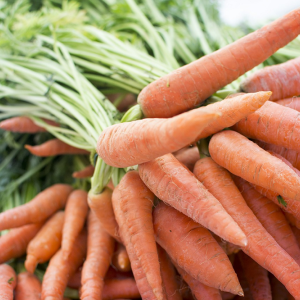
This paper, co-authored by Table member Hayo van der Werf, examines the spectrum of agroecological activity on organic vegetable farms in France. It reports that farming practices are linked to farm structure. For example, smaller farms are more likely to use agroecological practices. The paper sets out a framework that distinguishes agroecological organic farming from “conventionalised” organic farming, the latter of which involves more reliance on external inputs and supply chains that are more linked to global market prices.
Abstract
CONTEXT
According to the bifurcation hypothesis, a gap may be growing between “agroecological” organic farms, which rely mostly on ecosystem services, and “conventionalised” ones, which rely more on external inputs, related to contrasting evolutions in farm structure (e.g. size, specialisation) and supply chains.
OBJECTIVE
The objectives of this study were to 1) analyse the diversity of organic vegetable farming systems in France, 2) investigate the extent to which bifurcation can be observed among organic vegetable farms in France and 3) investigate the extent to which structural factors that can reflect bifurcation (e.g. profiles of “new organic farmers”, marketing channels, farm size) are related to conventionalised or agroecological OF.
METHODS
We developed a farm typology based on Factor Analysis of Mixed Data (FAMD) and agglomerative hierarchical clustering (AHC) using information obtained from an online survey with 165 complete answers. We used composite indexes that aggregated primary indicators to compare the biotechnical and socio-economic dimensions of farms among clusters.
RESULTS AND CONCLUSIONS
The diversity that exists in organic vegetable farms, with large differences among farm clusters, can be interpreted as a snapshot sign of bifurcation, which is a temporal process, and support hypotheses that relate farming structure to farming practices in this perspective. Our study suggests that 1) the dichotomy that contrasts “agroecological” to “conventionalised” organic farms should be considered as a conceptual perspective with two poles and a gradient of farms between them; 2) farms that were created as organic tended to be more agroecological than farms that were converted from conventional farming; 3) new entrants to organic farming had the best agroecological performances; 4) the best agroecological performances were associated with short supply chains, although good agroecological performances did occur with some long supply chains; and 5) the smallest farms were more likely to implement agroecological practices, but farm size did not have the same influence on all agroecological practices.
SIGNIFICANCE
These findings confirm the influence of structural factors that reflect bifurcation of the degree of conventionalisation or agroecology of organic vegetable farming. For a given set of structural factors (i.e. farmer profile, farm size and supply chain), however, agroecological performances varied greatly. This suggests levels of freedom to develop more agroecological organic practices for a given farm size or supply chain that should be further investigated.
Reference
Pépin, A., Morel, K. and van der Werf, H.M., 2021. Conventionalised vs. agroecological practices on organic vegetable farms: Investigating the influence of farm structure in a bifurcation perspective. Agricultural Systems, 190, p.103129.
Read the full paper here. Free access is available until 3 May 2021 using this link. See also the Table explainer How can we reduce food-related greenhouse gas emissions? and the Table project Scaling the system: Should the future of food be global or local?







Post a new comment »